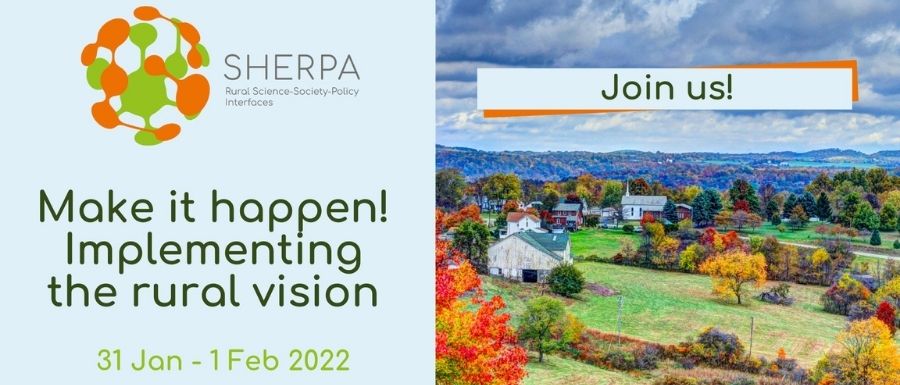On 31 January and 1 February 2022, the SHERPA project organized the second edition of the Annual Conference. This online conference was the occasion to present the work done during the past year, especially the work undertaken by the 20 SHERPA Multi-Actor Platforms (MAPs). Indeed in 2021, the MAPs worked on three relevant topics:
- Alternative rural futures (foresight),
- Change in production and diversification of the rural economy,
- Climate change and environmental sustainability.
These reflections had supported the implementation of the rural vision. Over 100 participants joined the virtual event to listen, exchange and share knowledge and experience with over 30 guest and keynote speakers as well as several Horizon 2020 projects which share their views and results.
This online conference was the occasion to present the work done, especially the 20 SHERPA Multi-Actor Platforms
On 2 February, the SHERPA project organized a training for the Facilitators and Monitors of the Multi-Actor Platforms. This online training was the occasion to gather in the morning the facilitators and the Monitors of the new MAPs. Then the afternoon session was dedicated to exchange and share best practices, advice between the new MAPs and already experienced MAPs. For this new year, the 40 MAPs will focused on and provide their views and inputs one of the 4 topics:
- Social dimension in rural areas
- Digitalisation, smart ruralities, including rural-urban relations
- Land-use management in the context of climate change
- Entrepreneurship and social economy, just transition, including sustainable value chains
About the project SHERPA:
Sustainable Hub to Engage into Rural Policies with Actors (SHERPA) is a four-year project (2019-2023) with 17 partners funded by the Horizon 2020 programme. It aims to gather knowledge that contributes to the formulation of recommendations for future policies relevant to EU rural areas, by creating a science-society-policy interface which provides a hub for knowledge and policy.
For more information: Website, Twitter, LinkedIn, Facebook, Instagram , Youtube
